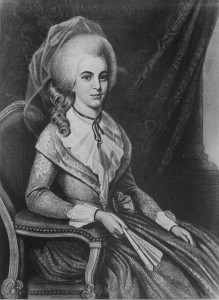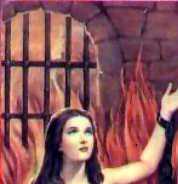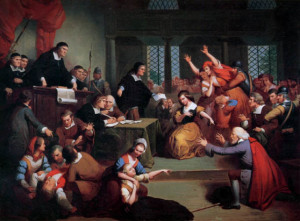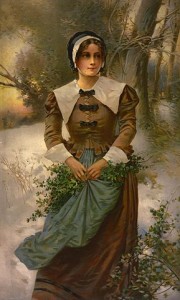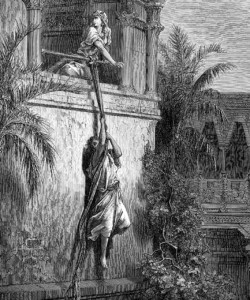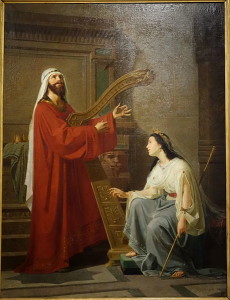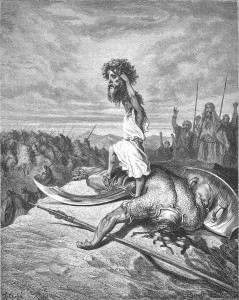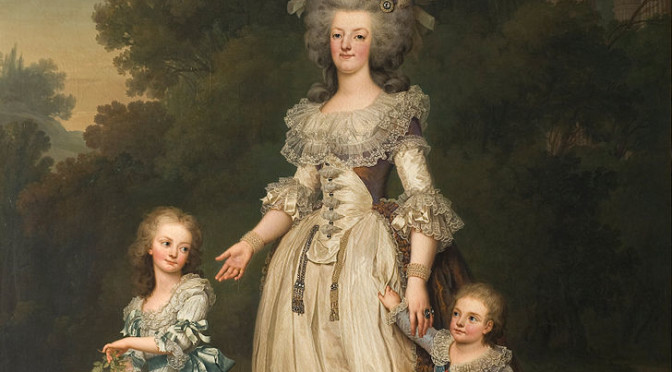
Tag Archives: Her storyline

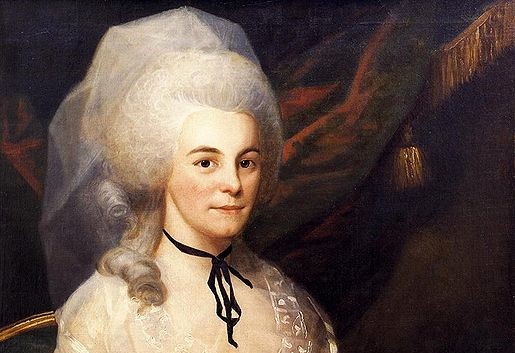
Mrs. Hamilton: When You Only Got 97 Years to Live
Hands down I agree with the article by Cokie Roberts about how Elizabeth Hamilton–not her husband Alexander–should be on the $10 bill.
Now I don’t totally hate Alexander Hamilton—I mean he’s a founding father. I did a report on him in eighth grade and got a good grade but was weirded-out by his personal life. Then years later, a musical about the man comes out. It made me research him again—and nope—my feelings for him hadn’t changed. While I was on Wikipedia, of course I had to click on his spouse’s name: “Elizabeth Schuyler.”
I was shocked.
“Ninety-seven? Ninety-seven. NINETY-SEVEN!” I couldn’t believe it. I told my roommate who listened patiently to how I can’t stand Alexander Hamilton but that his wife, Elizabeth, was extraordinary.
Martha Washington said, “She was always my ideal of a true woman.” In Alexander Hamilton’s farewell note he closed with calling Elizabeth “Best of wives and best of women.”
How did she make it to ninety-seven? Well, she and her sisters had been savvy in preserving themselves through the Revolutionary War. She proved she had a survival instinct. She was active. She was forgiving and loving. She had a purpose.
While preserving her husband’s memory (through gathering his papers and shutting down negative comments about him), she also had to pay his debts (was Alexander really qualified to be Secretary of the Treasury? Um…no!) and auction off their house . Miraculously, she was able to repurchase it. So who’s the real treasurer? (She had even helped him draft his financial plans!) She was the brains. Elizabeth also founded the first orphanage in New York (plus she also took in orphans into her personal home) and helped Dolley Madison raise money for the Washington Monument.
Elizabeth died fifty years after her husband. She was a survivor, but I further believe she had a divine mission to accomplish.
She greatly contributed to having her husband—and the other men who founded the United States Constitution as well as the document itself—being remembered and revered.
Images:
Paintings: Elizabeth Schuyler Hamilton by Ralph Earl
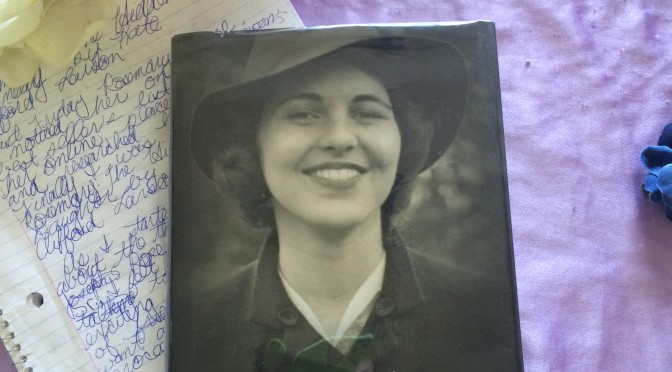
Rosemary: The Hidden Kennedy Daughter
Last Friday, Rosemary finally came! Beforehand, I had noticed her on Amazon’s best sellers’ list, researched her online, placed a hold, and researched her a little more. I couldn’t wait to read about JFK’s remarkable sister. Finally I was alerted Rosemary: The Hidden Kennedy Daughter by Kate Clifford Larson had arrived.
It was a quick read. As soon as I started reading Rosemary, I felt like I was being introduced to a new friend. Whenever I had to do something else, I closed the book, looked at the cover with Rosemary’s portrait, and promised I’d be back.
The book starts out with Larson dedicating the book to those with disabilities and their families. Larson narrates Rosemary’s story the way she sees it. It’s honest, heartbreaking, and hopeful.
I watched videos of the author on her book tour, and Larson is more frank with her opinions. However, in the book she gives the reader more lead way to decide if Rose and Joseph Kennedy Sr. did the right things for their daughter. Their concern for perfection and family seemed to be a constant conflict. The Kennedy family cares a lot about image, and they worked hard to include Rosemary while strategically positioning her in public or hiding her so no one would notice their gorgeous daughter’s learning disabilities and mood swings. At the same, Rosemary also wanted to please her parents—from adjusting to multiple schools to the fateful lobotomy.
I enjoyed reading about the love between Rosemary and her siblings—especially Eunice who was especially talented when it came to calming down Rosemary. Whenever Eunice appears, you feel safe.
I’ve always had reservations about the Kennedy family—and still do—but have a new respect and admiration for them. Learning about how Eunice Shriver founded the Special Olympicss of course impressive. But I was happy to learn how much they personally cared and didn’t (and still don’t) do this charity work at a distance. The last part of Rosemary’s life, the Shriver family put a lot of effort into strengthening bonds with Rosemary. They made sure that Rosemary made frequent visits to their home. The visits could be challenging but also uplifting. The visits seemed to have inspired the Shriver children to be better people, and they would continue to be involved with the work their mother started.
I texted my mom right after I finished reading Rosemary: The Hidden Kennedy Daughter. I highly recommended the book to her and recommend it to you. Rosemary is so compelling—so get to know her! Place a hold at the library. Read this book. It sounds cliché, but you won’t regret it.
Recommended Videos:
Rosemary: The Hidden Kennedy Daughter
Timothy Shriver Remembers His Aunt Rosemary Kennedy | Super Soul Sunday | Oprah Winfrey Network
Eunice Kennedy Shriver discusses her life and legacy
Recommended Sites:
https://bestbuddies.org/
http://www.specialolympics.org/

Book of Mormon: Women of Sherrizah
I believe the Bible is true. I believe the Book of Mormon is true. I shudder at scriptural fiction about specific people that existed though. I get upset because the doctrine tends to get skewed and people get misrepresented.
That being said, I really do find scriptural fiction exciting–as long as the main character isn’t someone who’s named in the scriptures. That’s why I am begging someone to write a novel about the women of Sherrizah from the Book of Mormon.
It would be a daunting task. The author would have be brave and spiritually in tune.
These women are the women in Moroni Chapter 9–the most gruesome chapter in the entire Book of Mormon. Both the Lamanites and Nephites do the most horrific acts. Mormon recounted the incidences in the letter to his son, Moroni.
First he wrote what the Lamanites did to the people of Sherrizah:
And now I write somewhat concerning the sufferings of this people. For according to the knowledge which I have received from Amoron, behold, the Lamanites have many prisoners, which they took from the tower of Sherrizah; and there were men, women, and children. And the husbands and fathers of those women and children they have slain; and they feed the women upon the flesh of their husbands, and the children upon the flesh of their fathers; and no water, save a little, do they give unto them. (vs. 7-8)
Sadly, it didn’t stop there. The Nephites showed horrid brutality as well:
And notwithstanding this great abomination of the Lamanites, it doth not exceed that of our people in Moriantum. For behold, many of the daughters of the Lamanites have they taken prisoners; and after depriving them of that which was most dear and precious above all things, which is chastity and virtue—And after they had done this thing, they did murder them in a most cruel manner, torturing their bodies even unto death; and after they have done this, they devour their flesh like unto wild beasts, because of the hardness of their hearts; and they do it for a token of bravery. (vs. 9-10)
If someone did write a novel about Moroni 9, I pray they wouldn’t get too graphic. There has to be a way to get across what happened though. Perhaps it can be told from the survivors’ point of view.
Yes. I didn’t notice the survivors till recently.
And again, my son, there are many widows and their daughters who remain in Sherrizah; and that part of the provisions which the Lamanites did not carry away, behold, the army of Zenephi has carried away, and left them to wander whithersoever they can for food; and many old women do faint by the way and die. (vs. 16)
So the surviving women were left without provisions. The old women (many–never said all) seemed to have died quicker than the younger ones. They must have been exhausted. But all these survivors of the towers must have been tough. The old women might have been very heroic in aiding the younger ones.
As for the younger women, how did they live the rest of their lives? Were they left alone?
Like totally alone?
Remember that at the beginning of the letter, Mormon tells his son he doesn’t know the full story For according to the knowledge which I have received from Amoron (vs.7) And where did Amoron receive it? It seems like the worse things were, the quicker people heard about them. It is puzzling, however, that they did know some women eventually “escaped.” That forced cannibals had little to drink. That old women died by the wayside. Interesting details. Makes me wonder if Mormon and Amoron met some of the women. What would their conversations have been like? It’s heartbreaking that Mormon’s army couldn’t protect them or themselves.
And the army which is with me is weak; and the armies of the Lamanites are betwixt Sherrizah and me; and as many as have fled to the army of Aaron have fallen victims to their awful brutality. (vs. 17)
The women who survived were too few to be numbered. What could these women have lived for?
I think recognition of all the women in Moroni 9 is long overdue. We have to remember them somehow.
I really like the article that http://www.womeninthescriptures.com/ wrote about these women. Please read it. I like how the author includes words of hope that Mormon offered his son at the end of Moroni 9. I wish to quote verse 25.
My son, be faithful in Christ; and may not the things which I have written grieve thee, to weigh thee down unto death; but may Christ lift thee up, and may his sufferings and death, and the showing his body unto our fathers, and his mercy and long-suffering, and the hope of his glory and of eternal life, rest in your mind forever. (vs 25)
I hope the author who writes a novel based on these events includes the theme of hope.
But one day, perhaps in heaven, we’ll know the exact truth of what happened to the survivors of Sherrizah.
Images:
The Mighty Fallen tree photo by Stanley Howe
Traditional Roman Catholic depiction of the Anima Sola (“lonely soul”) praying in the fires of Purgatory. From an old holy card.
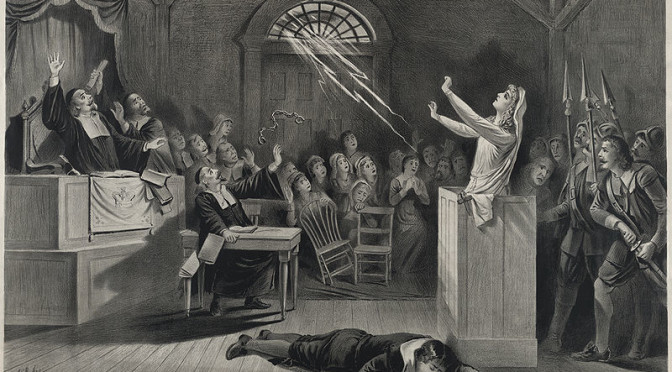
Heroine in Salem Witch Trials: Margaret Jacobs
Margaret Jacobs inspires me.
In early 1692, her father and uncle were accused of witchcraft and ran away. Her mother went mad, and Margaret’s siblings hid themselves.
She and her grandfather where accused and brought to court. As she walked through the court room nothing could fully prepare her for what would happen next. She wrote in her retraction about her confusion when those who claimed to be afflicted by witchcraft acted: ““which persons at the sight of me fell down, which did very much startle and affright me. The Lord above knows I knew nothing in the least measure how or who afflicted them.”
She was told she would not die if she confessed, and so confessed she did. She even pointed out other already accused “witches”. This included George Burroughs, a controversial reverend, and George Jacobs, Sr., her grandfather.
It would have been easy for her to rationalize. After all, she wasn’t solely responsible for the fates of her grandfather and Reverend Burroughs.
But she knew what she did was wrong. “The very first night after I had made confession, I was in such horror of conscience that I could not sleep, for fear the Devil should carry me away for telling such horrid lies… What I said was altogether false against my grandfather and Mr. Burroughs.” She suffered physically for denying her confessions, but there was some relief. “Upon my denying my confession, I was committed to close prison, where I have enjoyed more felicity in spirit, a thousand times, than I did before in my enlargement.”
Before the reverend’s execution and her grandfather’s on August 19, 1692, it’s believed that she was allowed to visit them. She asked Burroughs for forgiveness. He did and they prayed together. Her grandfather probably already forgave her as he had changed his will in prison which included her to inherit some of his money and provisions.
Margaret’s trial was postponed due to a boil on her head. Even when the convicted were free in early 1693, she stayed in prison longer than others due to the fact that she couldn’t afford her stay in prison (yes, people had to pay for being in the far from luxurious jail) and bail.
Margaret later got married, had seven kids, and was compensated some by the government. I believe she should be recognized more today. Not all teenage girls in the Salem witch trials went along with the chaos. She overcame weaknesses and showed integrity. This is what makes her a hero who we need to remember.
Sources
http://ancestoryarchives.blogspot.com/2014/02/the-jacobs-family-salem-witch-trials.html . “The Jacob and Family and Salem Witch Trials 1692: From the Archives Salem Witch Trials”
http://salem.lib.virginia.edu/people?group.num=G09&mbio.num=mb18
The Salem Witchcraft Papers.
http://www.geni.com/people/Margaret-Foster/6000000017450304347 Geni “Margaret Foster”
Norton, Mary Beth. In the Devil’s Snare: The Salem Witch Crisis of 1692. Published 2003 by Random House.
Salem Witch Trial Documentary by National Geographic. .
Images:
Salem Witch lithograph
“Trial of George Jacobs, August 5, 1692” by Thomkins H. Matteso
“A Fair Puritan” by Edward Percy Moran
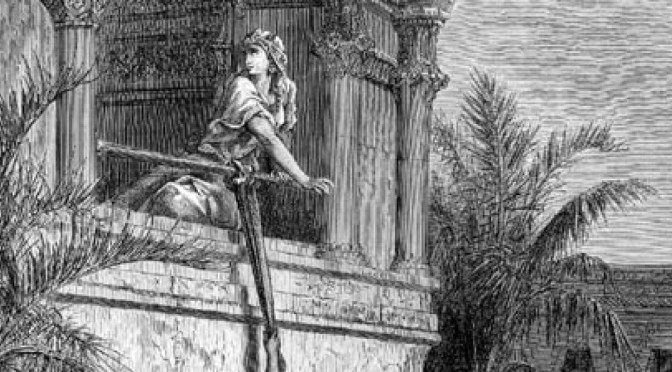
The First Window Scene
Michal was in a tight spot (yet again) when she heard Saul’s servants were going to kill David in the morning. She prepared a couple ideas but had to improvise.
So Michal let David down through a window: and he went, and fled, and escaped. And Michal took an image, and laid it in the bed, and put a pillow of goats’ hair for his bolster, and covered it with a cloth. And when Saul sent messengers to take David, she said, He is sick. (1 Samuel 19:12-14)
But there are two things that make people gasp. Michal has an image! A.K.A—idol! Well, say critics, that’s proof she cares only for worldly status. Plus lying is terrible even if you’re trying to save someone.
Um, really?
Plus this is only a snapshot of her.
Was this possibly in her bag of tricks? She may have been drawn to idols, but having one nearby was so…convenient.
Her father’s reaction is full of shock.
And Saul sent the messengers again to see David, saying, Bring him up to me in the bed, that I may slay him.And when the messengers were come in, behold, there was an image in the bed, with a pillow of goats’ hair for his bolster. And Saul said unto Michal, Why hast thou deceived me so, and sent away mine enemy, that he is escaped? And Michal answered Saul, He said unto me, Let me go; why should I kill thee? (1 Samuel 19:15-17)
In Michal’s Moral Dilemma by Jonathan Rowe, he calls the use of the idol “genius.” In Leah Kohn’s essay “The Story of Michal Beyond Loyalty to Torah,” she suggests that Michal’s word choice actually saved her husband’s life while also sparing her father less humiliation.
This window scene gives a peek of Michal as a woman who kept her marriage covenant to David and did everything to save him.
The Bible mentions that she did things before this that honored David and scared Saul. (1 Samuel 18:28-29). So there were multiple incidents of her helping David. If we were told more details about these incidents, Michal would receive far less criticism.
Further Reading:
1 Samuel 19
Michal’s Moral Delemma: A Literary, Anthropological and Ethical Interpretation by John Rowe. (See http://www.bloomsbury.com/us/michals-moral-dilemma-9780567076885/#sthash.BZVDtEFV.dpuf for details)
The Story of Michal Beyond Loyalty to Torah by Leah Kohn
Painting:
Michal lets David escape from the window. By Gustave Doré, 1865.
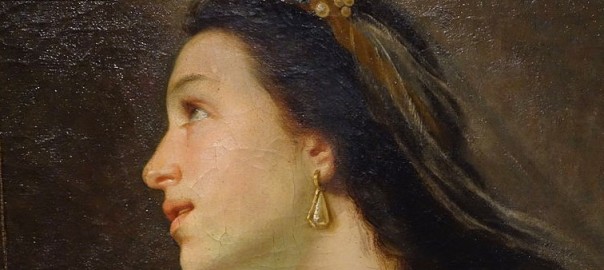
Michal: The Good Wife
The rabbis say Michal was a model wife. I believe it. The Midrash says that though she wasn’t required to, she wore the tefillin—scriptures on bands that could be worn around the forehead and arms. This was a reminder of how God delivered the Hebrews from Egypt as well as a sign of a clean mind and body.The Greek word for tefillin is “phylacteries” which means to guard and protect. Whether Michal wore the tefillin or not, I believe she was prayerful, remembered scriptures, and for sure she protected David.
I have no doubt she strove for perfection. She supported David. The following Bible verses show she cherished him very much:
“And Saul saw and knew that the Lord was with David, and that Michal Saul’s daughter loved him. And Saul was yet more afraid of David” (1 Samuel 18: 28-29).
I’ve seen emphasis more of why Saul was afraid of David. And I agree with the common consensus: Saul was scared because he was even losing support from the people in his family. If that happened, he could lose the support of the nation.
What I also get from this verse is that Michal was helping out David. A lot. She wasn’t just this princess brushing her hair longing for her prince. She was a princess at work. She was a good example of a Israelite, military wife and princess. She would have showed her support for him when she was out in public and when he was gone.
The scriptures say from the start that David is wise and well-behaved but he continues to grow and gain more support following both the mentions of Michal and Jonathan’s love. Like Jonathan, Michal would have also tutored him on royal behavior. Shortly after his marriage to Michal we see that “David behaved himself more wisely than all the servants of Saul” (1 Samuel 18:30) Good job, Michal!
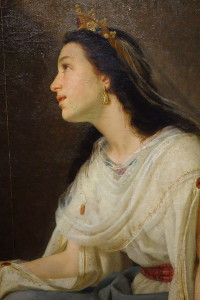 I’ll agree that Michal was attracted to the handsome hero, but I believe she looked more on the heart. Saul sent David on dangerous missions, and whatever Michal did he while he was gone, scared Saul. Rabbi David Kimhi said that Saul was scared of David because she found out Saul’s plots to kill David and prevented them.
I’ll agree that Michal was attracted to the handsome hero, but I believe she looked more on the heart. Saul sent David on dangerous missions, and whatever Michal did he while he was gone, scared Saul. Rabbi David Kimhi said that Saul was scared of David because she found out Saul’s plots to kill David and prevented them.
Saul hoped David would die on these missions and that David being away from Michal would prevent the newlyweds from starting a family. Saul probably didn’t want his daughter producing an heir that would support David. Likewise, later on it seems David didn’t want have children with Michal because he wanted to prevent the blood of Saul from inheriting the throne.
But she still loved him, and I believe he loved her.
I wish with all my heart that she did had children. She was very deserving. I also wish the Bible gave more details about her show of love and how she stopped Saul’s plots to kill him. Jonathan gets credit his multiple rescues, but she had been hard at work even before her famous heroic window scene.
Image:
Photo of the painting, “David and Michal,” by Virginio Grana, 1865
Sources:
On-line Tanach Class: Michal taught by Mordechai Torczyner
(http://ohave.tripod.com/chumash/michal.htm)
“Tefillin” Wikipedia article
1 Samuel 18
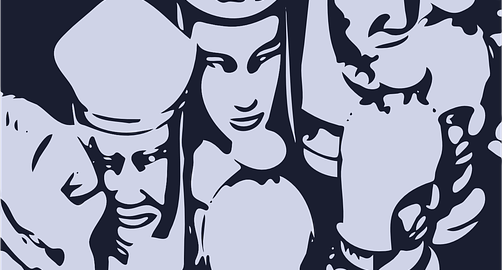
Michal: Manipulation and Marriage
After David and Goliath…
I read a fictional book and an article where it said Michal stole David from her older sister, Merab. That Michal manipulated David into marrying her. If that’s true, I actually think that deserves applause. Alas, I don’t think that’s the case. I have to say, though, that 1 Samuel 18 is a game of manipulation.
The chapter starts out with Jonathan loving David, the two making a covenant, and Jonathan demonstrating he would do whatever it took to make David king. Don’t underestimate the friendship between Jonathan and David. Between tutoring David of royal duties and training him to become a warrior king, they had to have talked about other…stuff.
Saul talked to David about marrying Merab at first. David could marry Merab if he swore his loyalty and fight for Saul. For me, David seems to be putting on an act when he responded: “What am I? and what is my life, or my father’s family in Israel that I should be the son in law to the king?”
There’s no mention of Saul pressing this matter on him, but the next verse reads: “But it came to pass at the time when Merab Saul’s daughter should have been given to David, that she was given unto Adriel the Meholathite to wife” (1 Samuel 18:17-19).
If David had a preference for either Merab or Michal, it’s likely Jonathan would know. He would know and do something about it. Or perhaps Jonathan and David discussed who would be better suited for David as a wife. Whatever the case, I’m sure Jonathan—who would save David’s life and prove that he could persuade his father—would have stepped in.
The plan for Michal to marry David could have been in action before this. Certainly, now that one of two daughters was married off, David wanted the single one for his wife and something had to happen. I believe Jonathan was instrumental in the plan.
Verse 20 sparks suspicion from two opposing sides–those who think David wanted Merab and those who think he wanted Michal. The verse reads:
“And Michal Saul’s daughter loved David: and they told Saul, and the thing pleased him.”
Yes, now that Merab was unavailable, it seems people come up suddenly and speak of Michal’s love. There were things going on behind the scenes. But I hardly believe Michal could have orchestrated this plan by herself.
Besides, we’re told already all Israel and Judah loved David. So it wasn’t as if people came forward saying, “Guess what? Your young daughter also loves David!”
That wouldn’t have been news to anyone. Surely the readers must realize this.
The verse is vague. A question that should arise is who exactly is “they”? Most likely Saul’s servants but perhaps other servants. Did Saul send them to Michal and ask if she was interested in marrying David? Or was she and possibly Jonathan plotting with them? Michal’s love was perhaps something Saul wanted to hear.
Here was Saul’s thought process and commands to his servants:
And Saul said, I will give him her, that she may be a snare to him, and that the hand of the Philistines may be against him. Wherefore Saul said to David, Thou shalt this day be my son in law in the one of the twain.
And Saul commanded his servants, saying, Commune with David secretly, and say, Behold, the king hath delight in thee, and all his servants love thee: now therefore be the king’s son in law. (1 Samuel 18:21-22)
At first David has the same reaction as he did when Saul presented the idea of marrying Merab:
And Saul’s servants spake those words in the ears of David. “And David said, Seemeth it to you a light thing to be a king’s son in law, seeing that I am a poor man, and lightly esteemed?” (1 Samuel 18:23)
Saul wasn’t about to let David go this time. Was he getting counsel from someone? If so, the whom? Perhaps Saul had made David an offer before, but David didn’t take it. I don’t think it’s a stretch to say David was being coached.
Back to the chapter and what happens after David’s passive answer:
And the servants of Saul told him, saying, On this manner spake David. And Saul said, Thus shall ye say to David, The king desireth not any dowry, but an hundred foreskins of the Philistines, to be avenged of the king’s enemies. But Saul thought to make David fall by the hand of the Philistines.And when his servants told David these words, it pleased David well to be the king’s son in law. (1 Samuel 18:24-16)
Whether David was pleased to be on his way to coming king or/and couldn’t wait to marry Michal, he doesn’t mind he could marry her. It’s kind of strange actually. He puts his whole heart in the deadly mission.
“Wherefore David arose and went, he and his men, and slew of the Philistines two hundred men; and David brought their foreskins” (1 Samuel 18:27).
Saul had no choice but to let Michal and David marry. Instead of Saul manipulating the situation, David won this battle.
Jonathan had made a covenant with David.
Now Michal also made a covenant with David through marriage. She would be a good wife.
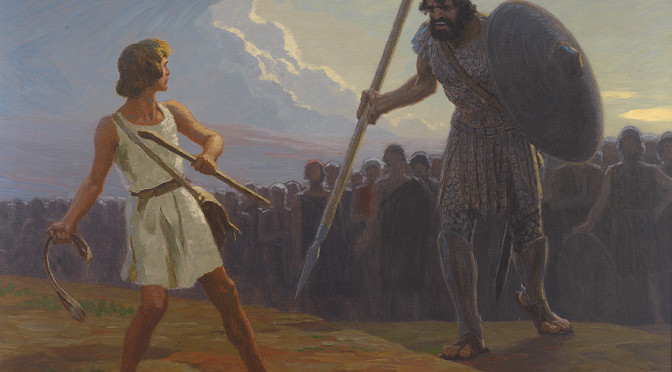
David and Goliath, or the Quest for Michal Begins
Going WAY back. To better times…
It’s hard to know when Michal actually met David. He was already a minor celebrity when, through word of mouth, got the the appointment as one of the king’s musicians. Before coming to court, he was anointed as Israel’s next king.
Saul and his household appreciated the peace he brought to court. Through Saul’s disobedient and perhaps through the traumas of battles, the evil spirit that plagued Saul left when David played. Good music is good therapy.
Very few knew of David’s call to be king at this time. He would have been more observant of Saul and his family than they were of him. There was something special, though, about this harp player that impressed Saul and others. Yet, Saul inquired more about him after he defeated Golaith. David then became a resident in the royal household.
Is This Not a Cause?
Oh, yes, we need to discuss David and Goliath.
There was terror—even from Michal’s brave father—with the threat of Goliath. There were rumors. David picked up on some when he acquired what’s up by men on the roadside. Goliath was feared and David heard some men say that “The man who killeth him, the king will enrich him with great riches, and will give his daughter, and make his father’s house free in Israel” (1 Samuel 17:25-27)
Did he hear that right? David asked if it true, and the people were confident that the victor would get those great prizes.
David’s oldest brother, Eliab, was taken aback when he heard David’s conversation. I find David’s reply a little enlightening. “What have I now done? Is there not a cause?” (1 Samuel 17:29)
Or a couple. Did you pick up on anything? Or anybody? Basically this was a nice lead way into gaining access to kingship.
And daughter? The passage doesn’t specify Michal or her older sister Merab which I find interesting. Perhaps David didn’t care which daughter as long as marrying one of the king’s daughter got him closer to being king. Still I find it curious that Merab’s name isn’t inserted.
David was young. Most likely too young to marry now according to Saul. Merab and Michal were surely young—maybe not even considered women yet. For sure they were going to get married since it was in their father’s best interest to make alliances.
Happy Days
It was a happy day for Israel when David defeated Goliath. Israel was pumped and chased the Philistines. David moved into the royal household.
David had got what was promised. Almost. He was still too young to marry Saul’s daughter, but the idea was planted in his head. David always got what he wanted. Always.
I mentioned before how David would have found Michal appealing. The chances of marrying a rare Benjaminite woman of her position, were out of his world. Of course Merab fit the same criteria, but Michal was also the younger daughter. Biblical tradition shows the eldest daughter was married off first. As we see in the Jacob, Leah, and Rachel story, a younger daughter is more of a challenge to get. The more challenging, the better for David.
Sources:
1 Samuel 17
Images:
David gegen Goliath by Gebhard Fugel
David Slays Goliath by Gustave Dore

Treason and Queens Making Scenes
Sadly, it’s sometimes better to be seen than heard when you’re in situations like Michal. Men get off easier if they say something similar.
Paintings, photographs, and just visual appearances at public events can be more effective than words if princesses want to make a point.
But sometimes, you can’t help yourself…
Here are some notable examples.
Princess Diana and BBC’s Panorama Interview
Princess Diana decided she could outdo her husband, Prince Charles, again after he gave a televised interview in which he admitted to adultery. Other people were getting to her too. The pressures, anger, and frustrations of Diana were enough for her to agree to BBC to interview her. She secretly set up an interview with Martin Bashir. She had her staff take the night off.
It was the evening of November 5. In England that happens to be Guy Fawkes Night. November 5, 1605 was when Guy Fawkes, who planned to blow up Parliament (which included the King), was caught. People celebrate Fawkes’ capture with fireworks. Little did people know that on November 5, 1995, there was treason and a different kind of fireworks going off. Diana spoke out against her husband, the monarchy, and other people who she felt betrayed her. She reflected how much she loved her husband—yet at the same time she wasn’t showing much love.
At first she felt good about it, but later regretted it. The Queen asked she and Charles get a hasty divorce very soon afterwards.
 Their son William was reportedly extremely upset by it. Some people left her service including her secretary Patrick Jephson. In a special called “Behind the Panorama” he posed the question of why people in the public eye “feel the need” to do things in public.
Their son William was reportedly extremely upset by it. Some people left her service including her secretary Patrick Jephson. In a special called “Behind the Panorama” he posed the question of why people in the public eye “feel the need” to do things in public.
The question is as true today as it was in the Bible.
Queen Sophia Magdalena’s Scene at the Opera
When Danish princess Sophia Magdalena arrived in Sweden in 1766 to marry Prince Gustav, he and the rest of the Swedish people seemed happy. Their relationship was strained due to gossip. She was more introverted and came off as cold. Her mother-in-law, Louisa Ulrika, smeared her image right from the beginning.
When Gustav became King and Sophia became Queen, rumors about their personal relationship and political activities grew worse. When Sophia heard that Gustav planned to take away their son away from her, she made a public scene at the opera. She went to his box and confronted him about it. A verbal fight broke out between the two. Before she left, she said, “I will have my vengeance monsieur! I give you my sacred vow on that!”
Could this fight have waited? Perhaps she felt the urgency and maybe it was one of the only times she could talk to him. I think it was only a matter of time before everything just blew up.
Daughter of Saul
When you first read 2 Samuel 6, it’s like, what? Where did that can from?
Remember Michal was dropped from the narrative for a while but was behind the scenes. After we know more of what she went through and learn why and about how other royal women similary took (and still take) a stand publicly, it totally makes sense. Truthfully, I would have been more surprised if Michal had not put up a public fight.
Sources:
“Princess Diana: Behind the Panorama Interview” Documentary
“Princess Diana ‘regretted’ Panorama interview”taken fro m The Telegraph article by Richard Alley, 15 Dec 2007
http://www.telegraph.co.uk/news/uknews/1572605/Princess-Diana-regretted-Panorama-interview.html
Princess Sophia Magdalena of Debmakre Wikipedia page
Ensam drottning. Sofia Magdalena 1783-1813. [Lonely Queen. Sophia Magdalena 1782-1813] by Gerd Ribbing
Images:
TIME cover Mar 11-1996 Princess Diana. Posted by manhhai at https://www.flickr.com/photos/13476480@N07/8499071865
